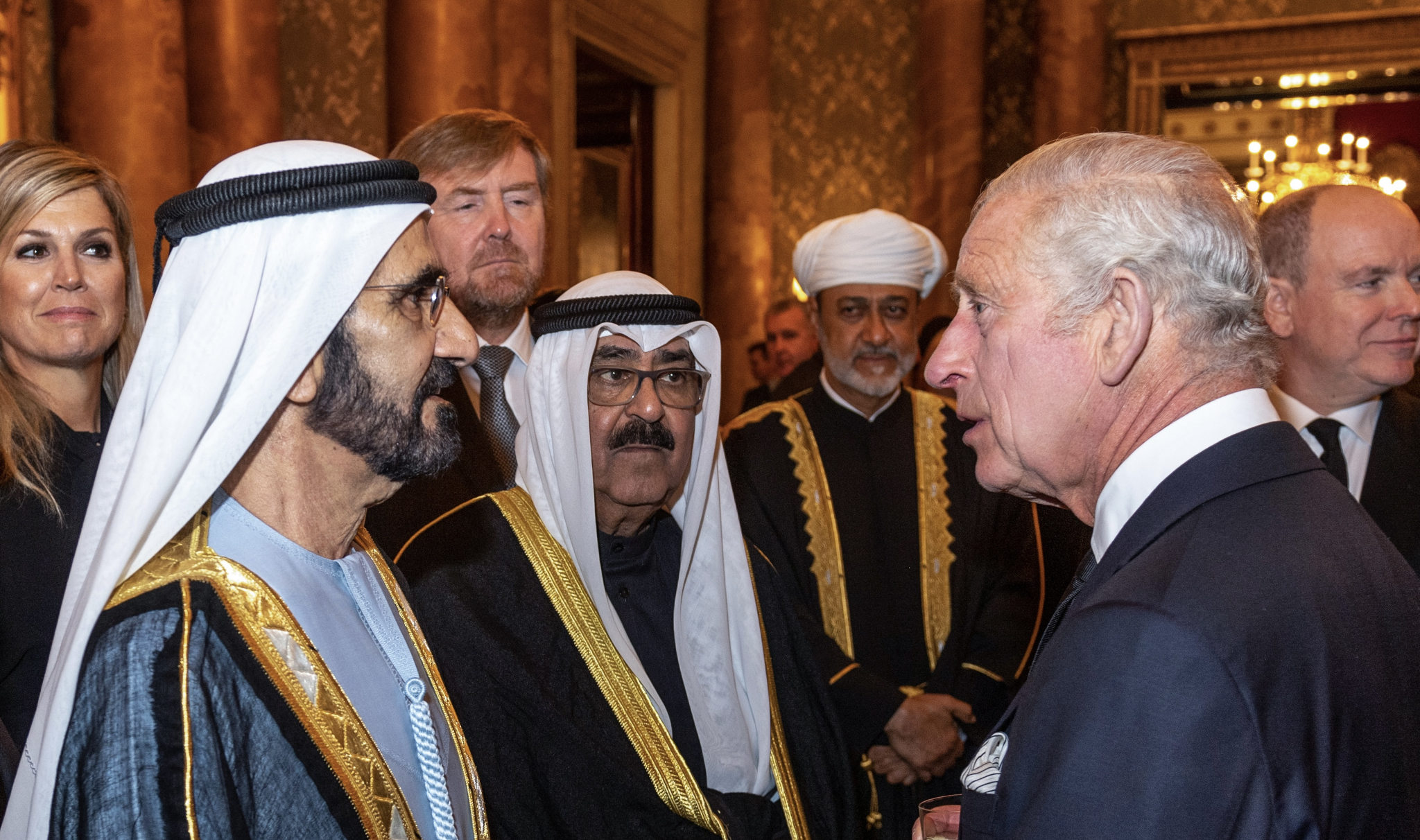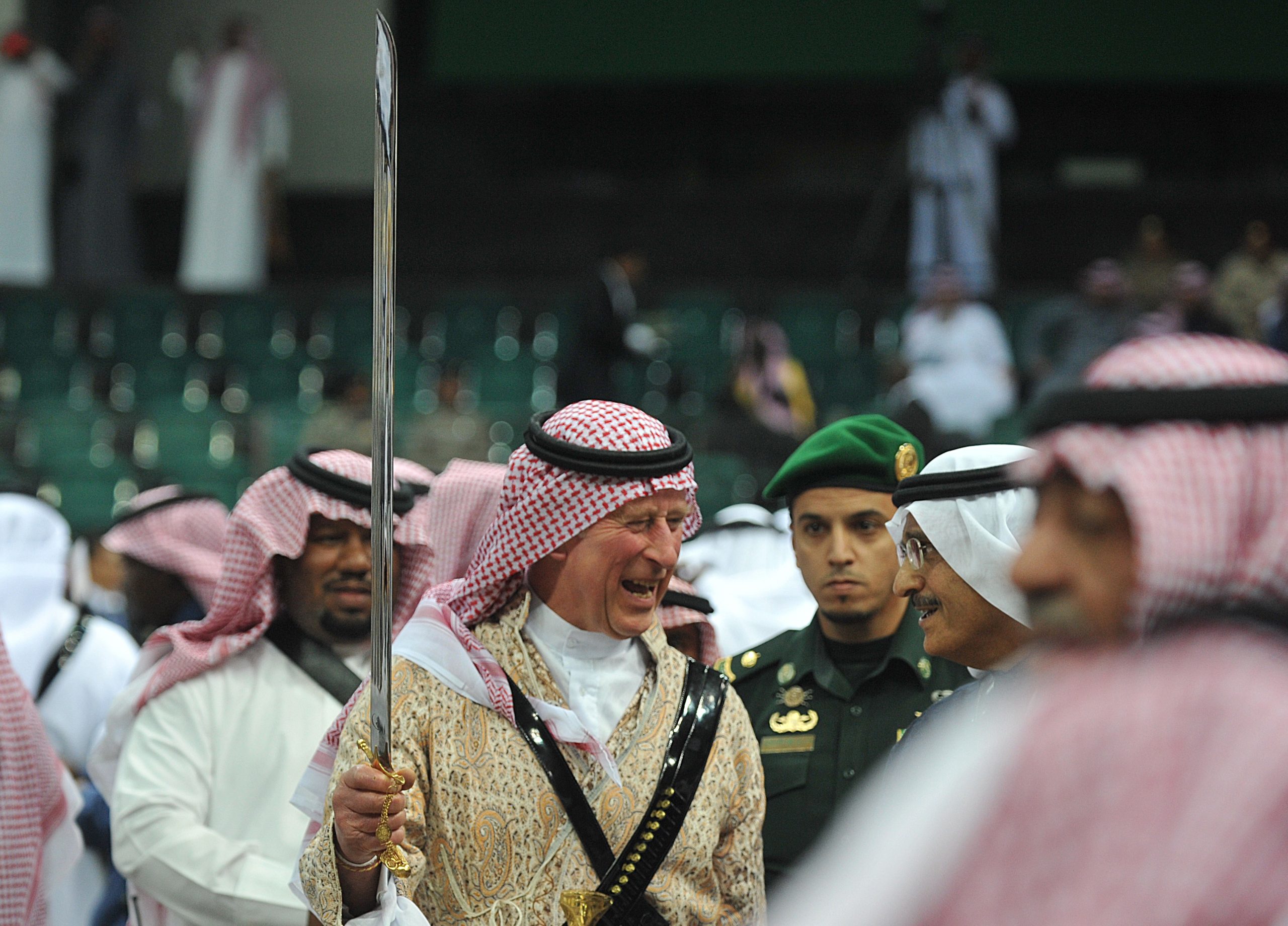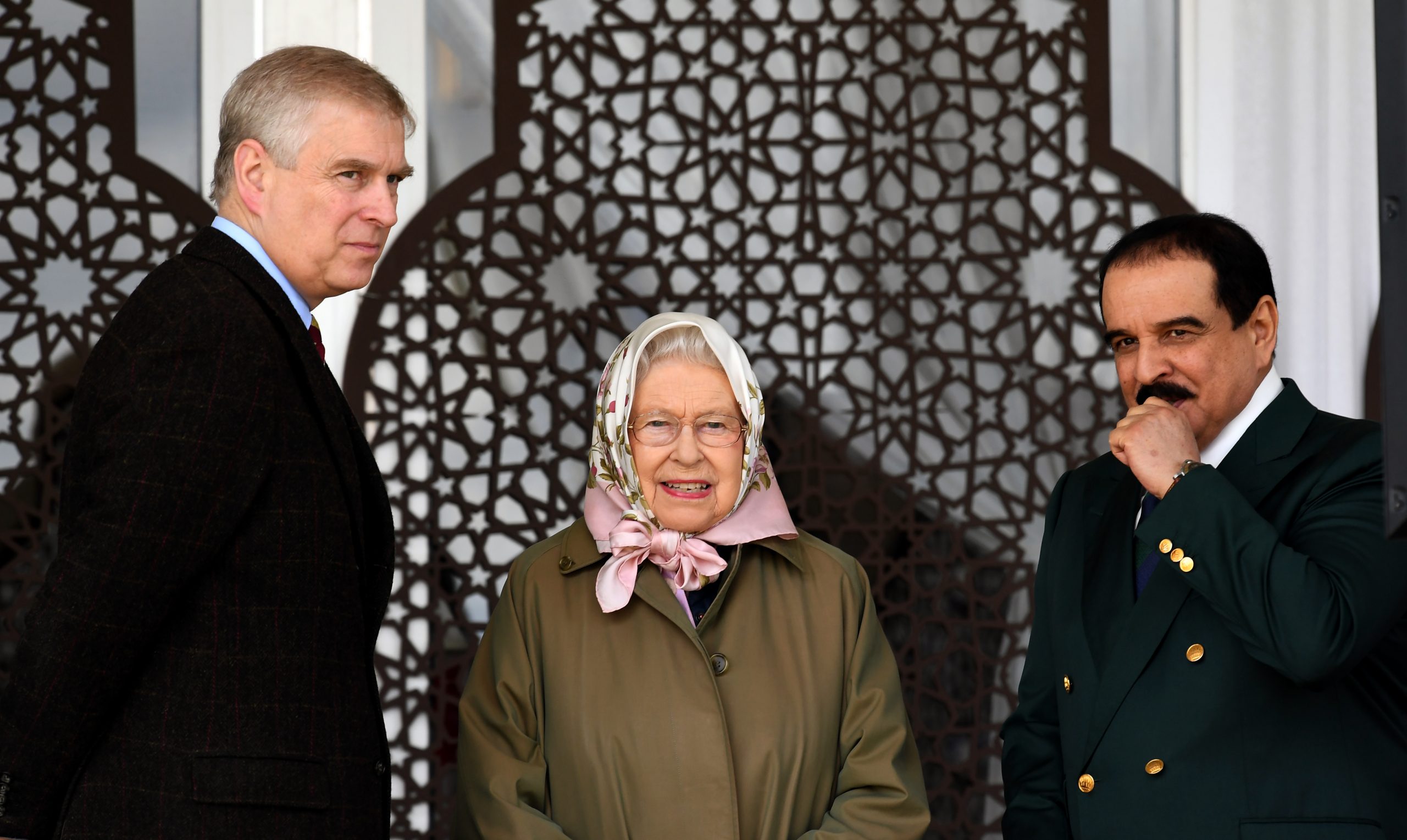A former Home Office minister and a pro-democracy activist who was tortured in the Gulf have both slammed Britain’s new head of state over his extensive contact with Arab royalty.
Research by Declassified UK has found that King Charles held 120 meetings with ruling families from eight Middle Eastern monarchies since popular protests rocked the region in 2011.
The number of meetings has increased from 95 since our research was first published in 2021 and now average ten a year. More are expected to occur around the coronation, with invitations being sent to every head of state.
Norman Baker, who served as a minister in David Cameron’s coalition government, told Declassified: “Charles’s obsession with meeting unelected monarchs from frequently dodgy regimes which show contempt for democracy and human rights is embarrassing and a stain on this country. But you can judge a man by the company he keeps.”
Baker, who wrote the book What The Royal Family Don’t Want You To Know, added: “While all other European monarchies have moved on, scaled down, and become embedded in democratic constitutional arrangements, the British monarchy still sees itself, and acts, as an imperial monarchy. It is about time Charles and the rest of the royal family realised this is 2023 not 1823.”
Although Charles is yet to travel to the Middle East since becoming King, Arab royals were invited to his mother’s funeral and met him again at Sandhurst military academy in Berkshire on 14 April.
Jordan’s King Abdullah II and the crown prince accompanied Charles on a passing out parade of new army officers at Sandhurst.
Both Jordanian royals are Sandhurst alumni, following in the footsteps of their late father Hussein, who has a pavilion named after him at the academy.
Camilla has also spent time with Jordan’s ruling family, inviting Queen Rania to tea at Clarence House in November.
These encounters come despite Human Rights Watch warning: “Authorities in Jordan are becoming increasingly repressive, quashing dissent by arresting and harassing activists and journalists and using vague and abusive laws to restrict civic space.”
Jordan’s lower house of parliament is elected but King Abdullah can dissolve the assembly and dismiss its prime minister at his discretion.
Rewarding Gulf regimes
Sandhurst even saw Charles award a sword to Jabar Al Sabah, the grandson of Kuwait’s crown prince, for the best performance by a foreign cadet. Kuwait has a similar political system to Jordan, with the monarch holding executive power.
Qatar’s unelected deputy prime minister watched the cadets graduate, whose ranks included a member of Doha’s Al-Thani ruling family. Charles has previously received millions of pounds in cash from a Qatari royal.
Another Arab autocracy to engage with Charles at Sandhurst was the Al Khalifa royal dynasty of Bahrain, a country where the largest opposition party is banned and critical newspapers shuttered.
Bahraini cadet Sheikh Al Waleed bin Khalid Al Khalifa received a medal at Sandhurst for the most improved performance by a non-British cadet.
The award ceremony was attended by his older brother, Hamad, who was able to enter the UK despite taking part in an assault of exiled Bahraini human rights activists on Oxford Street in 2017.
The fight featured in Declassified’s documentary, Exiles v Oligarchs.
Among the exiles targeted in the brawl were photojournalist Moosa Mohammed and activist Ali Mushaima, whose father is serving a life prison sentence in Bahrain for leading the country’s Arab Spring pro-democracy protests.
Sayed Ahmed Al Wadaei, director of the Bahrain Institute for Rights and Democracy (BIRD) said it was “shocking” that “King Charles continues to maintain cosy relationships with autocratic Gulf monarchies, including King Hamad Al Khalifa.”
BIRD’s director, who was tortured for taking part in the 2011 Arab Spring uprising, added: “This is despite the fact he has been one of the most repressive rulers in Bahrain’s history…including the murder of peaceful protestors, killing detainees under torture and executing his opponents.”
Bahrain hosts a UK naval base and like the other Arab monarchies is a significant customer of British weaponry, with Charles often being sent by the Foreign Office to visit the Middle East at crucial moments in arms deals.
Brigadier Peter Sincock, Britain’s former defence attache to Saudi Arabia, has said Sandhurst training of foreign cadets is “very helpful…in the field of military sales”.
Funeral
Further encounters between King Charles and repressive Arab rulers took place in the wake of his mother’s death last year.
The monarchs of Bahrain, Oman, Dubai, Jordan, Qatar and Kuwait all rushed to Buckingham Palace upon the passing of Queen Elizabeth to offer condolences.
Dubai’s ruler, Sheikh Mohammed Al Maktoum, was welcomed despite a British court ruling in 2020 that he had abducted and detained two of his adult daughters.
That judgment had prompted Queen Elizabeth to say she would no longer be photographed with him in public – a policy which Charles has not observed.
The intimate gathering at Buckingham Palace was followed the next day by the state funeral service in Westminster Abbey, which was attended by the King and Queen of Jordan plus senior princes from Bahrain, Morocco and Saudi Arabia.
Jordanian princes and princesses were seen at the committal service inside Windsor Castle later that same day.
A similar show of support is expected from Arab royals for King Charles’ coronation on 6 May, with BIRD warning he “must rescind his invitation to ruthless Gulf dictators” if he wants to “truly mark a new era”.
More meetings could happen the following week at the Royal Windsor Horse Show, which is a traditional stomping ground for Gulf autocrats.
The event is sponsored by equestrian teams owned by royal families from Bahrain and Abu Dhabi.
Riders from Azerbaijan’s dictatorship are expected to put on a display, having given Queen Elizabeth a horse at last year’s session.
Buckingham Palace declined to comment.




